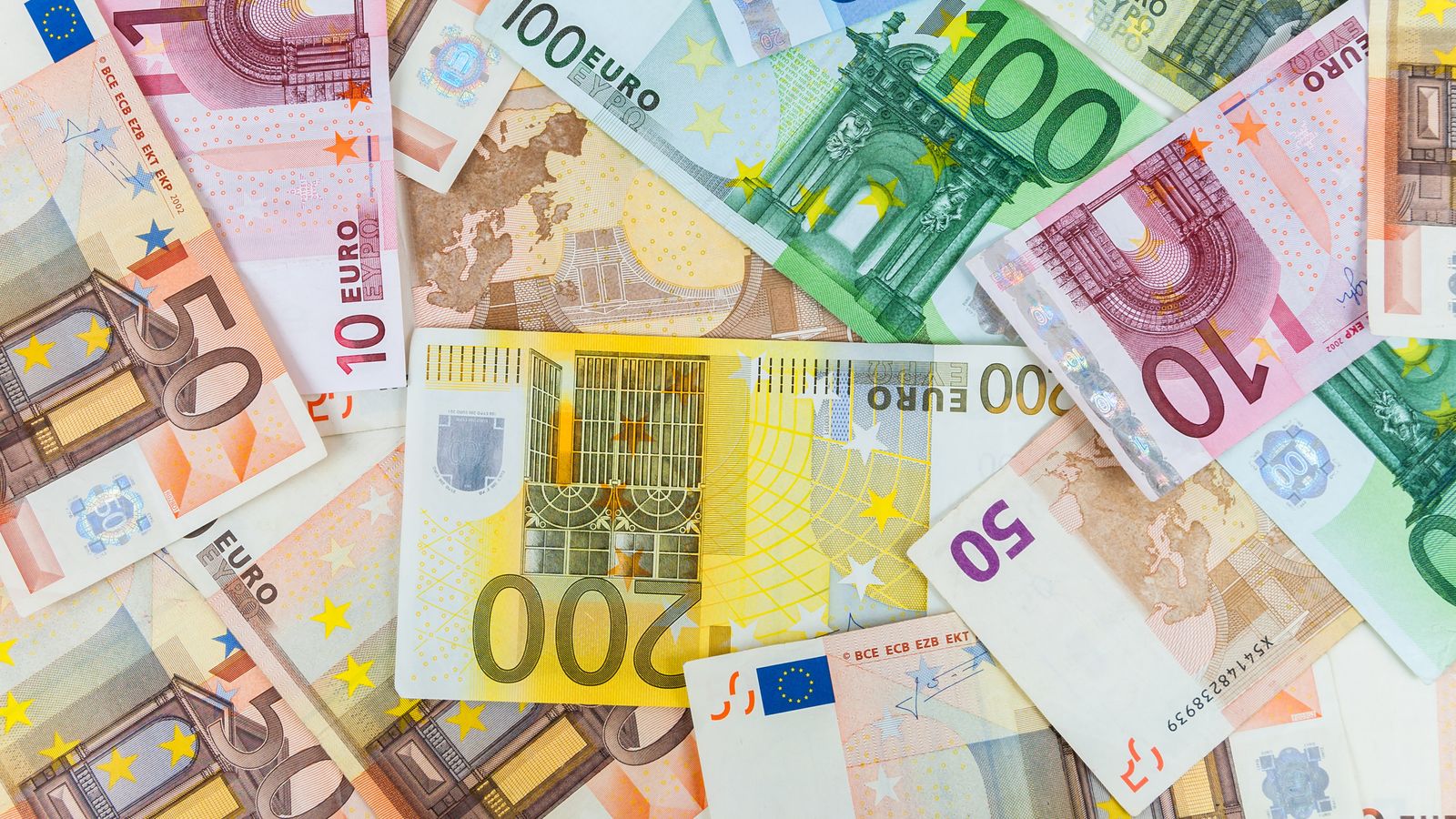The European Central Bank’s main interest rate has hit its highest level since the creation of the euro in 1999 amid the continuing battle against inflation.
The Bank’s deposit rate was raised by 0.25 percentage points to 4% at the latest meeting of the governing council, which manages monetary policy for the 20 countries that use the European single currency.
Financial markets and economists had predicted the decision would be a close call, given stubborn inflation in many euro-using nations.
The August inflation figure for the euro area as a whole came in at 5.3%, more than twice the central bank’s target rate of 2%.
The “one-size-fits-all approach” in ECB policy is complicated by the varied challenges faced by each member state.
For example, many in the eastern bloc are still suffering from inflation rates running into double digits.
Read more from business:
Arm Holdings valued at £43.6bn ahead of stock market return
John Lewis transformation to take two more years
Deloitte to cut ‘more than 800 jobs in the UK’
At the same time, members such as Belgium and Spain are seeing the pace of price growth running at levels nearer 1%.
Rising interest rates are a particularly troublesome prospect for Germany – Europe’s largest economy – and the Netherlands, which are already in recession, as they are designed to choke demand in the economy.
Listen and subscribe to The Ian King Business Podcast here.
Andrew Kenningham, from Capital Economics, said the ECB’s decision “probably brings the current tightening cycle to an end.”
He added: “But given the strength of underlying inflation, we expect rates to remain at this level for at least a year even though the economy seems to be heading for a recession.”
Neil Wilson, chief market analyst at Finalto, also said the indications were “the ECB thinks it is done for now and we have reached the peak in rates.”







